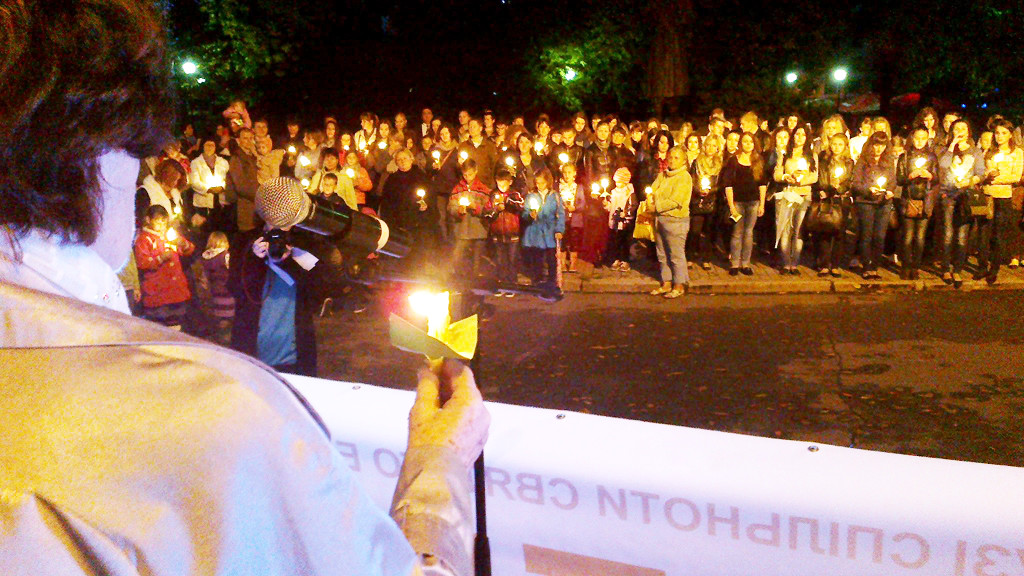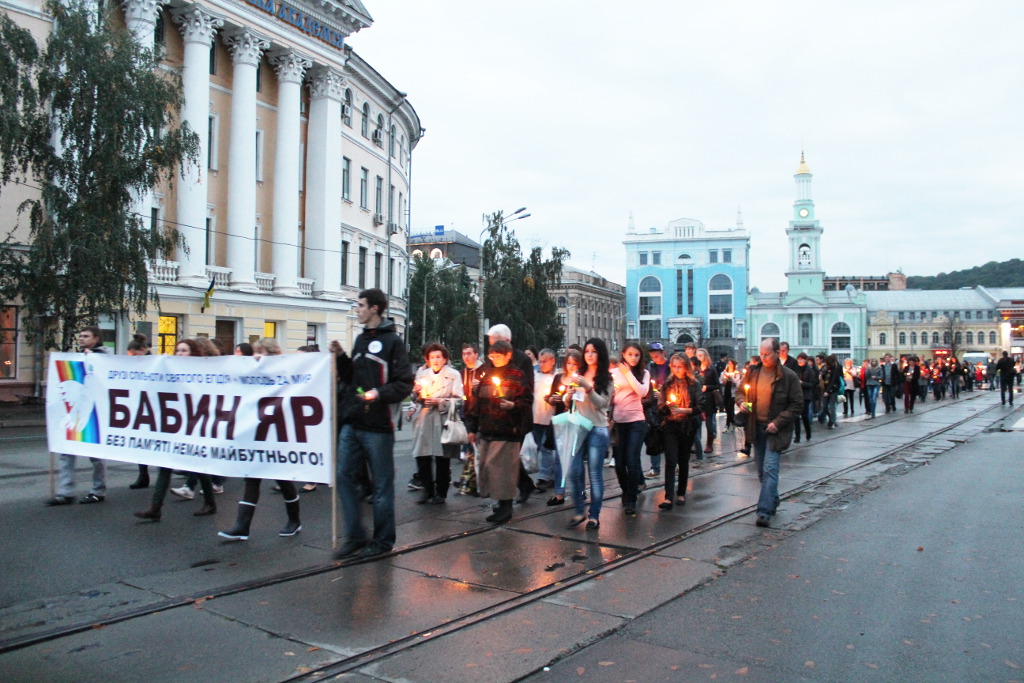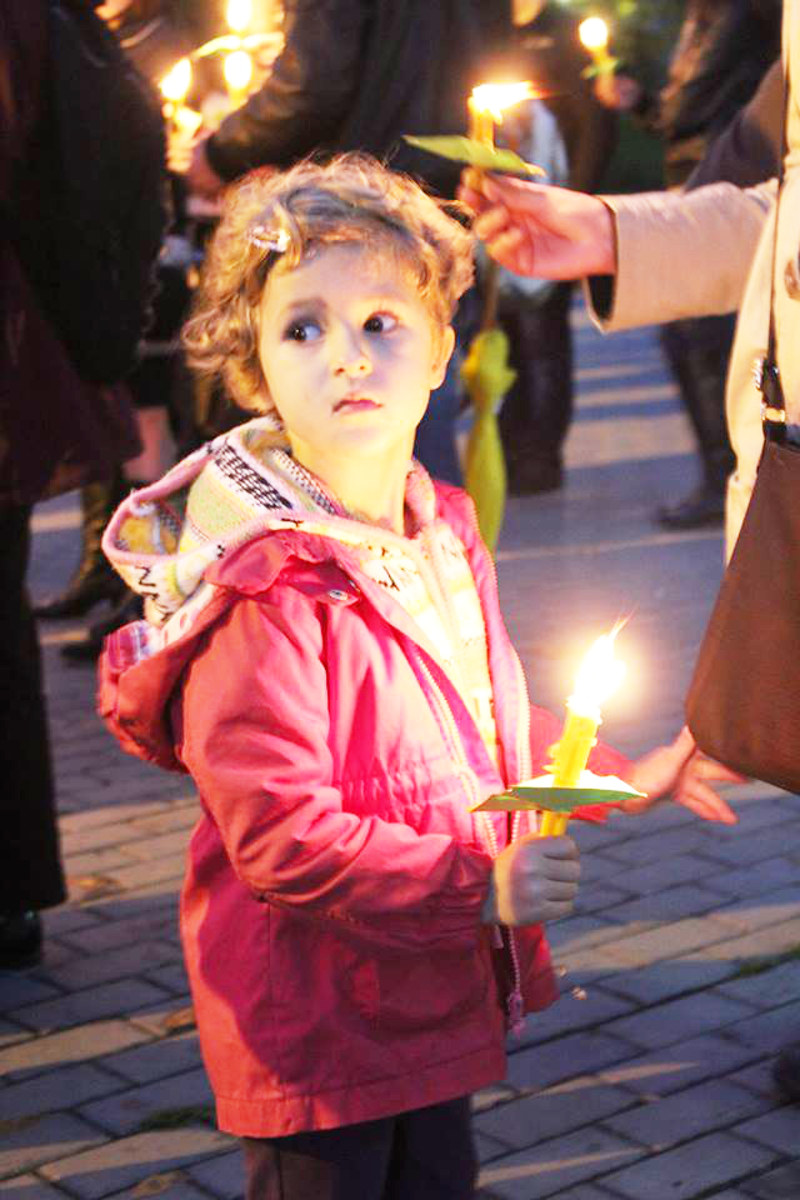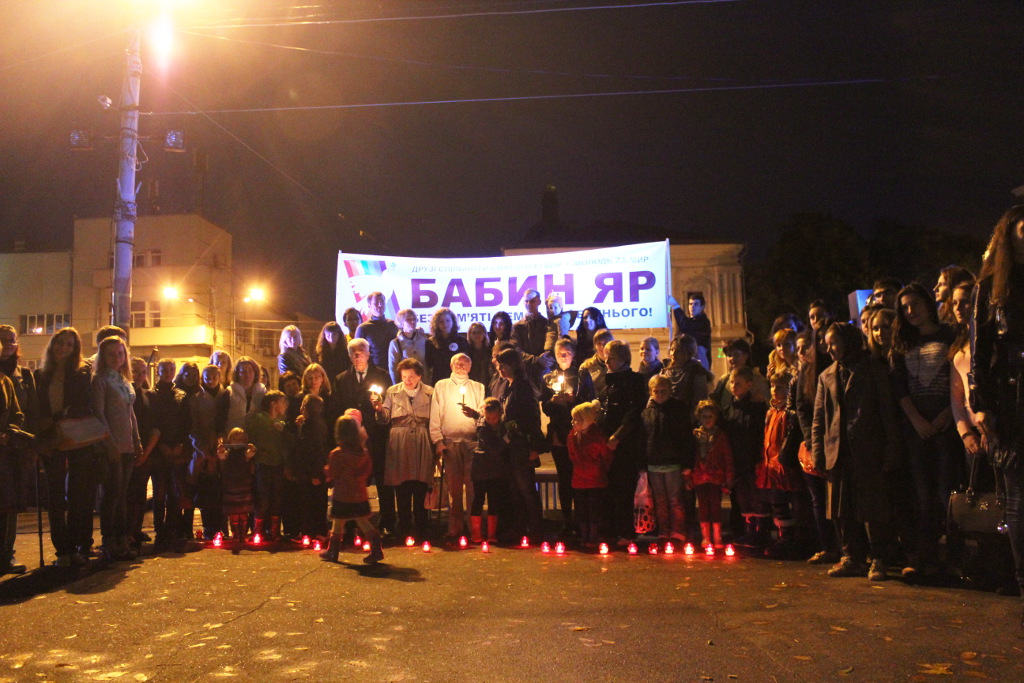
The Babij Jar march of memory, organised on 15 September by the Community of Sant'Egidio and by the "Youth for Peace" movement, was attended by many inhabitants of Kiev: families, students, old people and poor people who are friends of the Community. The presence of a woman, witness to the tragic events of September 1941, was precious. They went together to the neighbourhood of Podol, the old neighbourhood of the city where Jews once lived and from where they left on their last trip. The Nazis killed more than one hundred thousand people, mostly Jews, in Babij Jar, on the outskirts of Kiev, in about three years of occupation. More than thirty thousand peaceful inhabitants: Jews and Roma gypsies, women, children and the elderly, were killed in Babij Jar only between 29 and 30 September 1941.

The march ended with a commemorative meeting. "I saw with my own eyes how they shot ... undressed the people, plucked the small children and threw them into the ditch ... I attended the ninth grade, we went to accompany our Jewish friends, who were taken away, no-one knows where ..."- As Anna Bebych, a just woman of Babij Jar, told at the meeting. Her family saved the lives of eight Jews. "There are very few witnesses of Babij Jar still alive and there will soon come a time when you will gather without them on the days of memory" - said Boris Zabarko, head of the Association of former deported Jews of the concentration camps and the ghetto. The president of the Jewish community of Kiev sent a greeting on behalf of the Chief Rabbi of the city and thanked the Community for its commitment to preserve the memory of this tragedy. He also expressed his joy at the fact that many young people and children came to the march. Many have thanked the Community for the opportunity to honour the memory of the victims and for the work that it leads to spread a culture of peace, mutual respect and solidarity.
A symbolic fact was that, during the meeting, the preparation of the 4th international conference "Young Europeans for a world without violence" was announced, which will take place in September 2014 in Krakow - Auschwitz.

The meeting ended with an intervention by the Community, in which it was said that"memory is not a cause of division but, on the contrary, the memory of these tragic events makes us work to overcome the divisions between the Roma, the foreigners and the others, the rich and the poor; to overcome the current divisions between young and old people".
The march took place for the second year and is becoming a precious tradition for the city. The initiative of a march of memory was born at the city meeting of 2011 " 70 years of Babij Jar. There is no future without memory".

|

